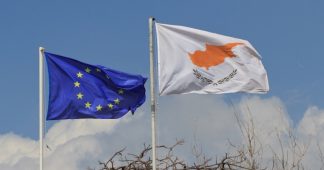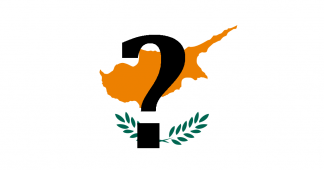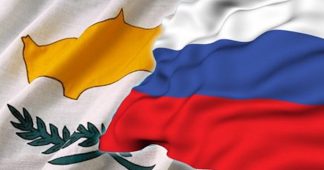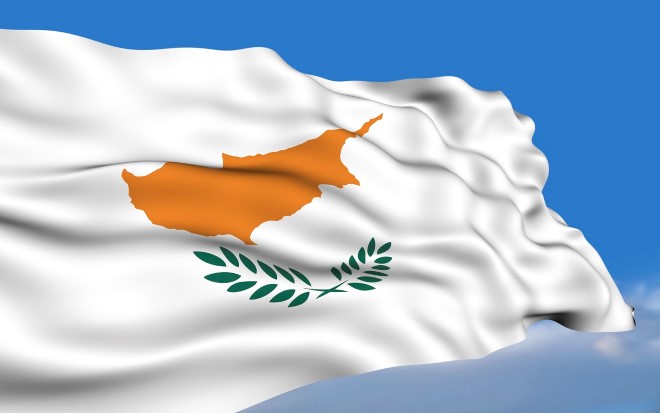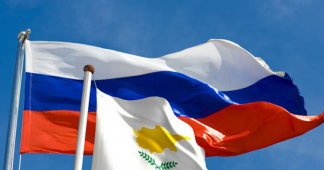By Aris Petasis*
Recently, some of us in Cyprus had the good fortune to be invited to a speech on the EU and the Mediterranean (Med) by Miguel Angel Moratinos, former Spanish Minister of Foreign Affairs and the first “EU Special Envoy to the Middles East Peace Process;” a man who knows the Middle East (ME) as well as anyone. Miguel’s speach was one of optimism, not withstanding the fact that he enumerated EU’s failings in the region. He noted with gusto that EU founders Jean Monet, Robert Schuman, de Gasperi, Spinelli, etc would have been proud to see: a.) EU’s economic prosperity, b.) General peace and no wars and c.) Customs union, single market, Schengen, Euro, Erasmus and so on. Interestingly, he stressed that the creation of the EU was more of a political vision and strategic commiment than an economic arrangement.
As regards the EU and the Med he pointed to the Venice Declaration of 1980 and the 1995 Barcelona EU Council of Ministers’ support for an autonomous EU policy toward the Med. He then went on to outline what went wrong in the EU policy towards the Med: a.) lack of EU political will to solve Med problems, b.) lack of economic and financial support for the area and c.) Unending ME conflicts. The Med is back as a priority on the EU agenda, Miguel stressed, making reference to the Med’s [refugee] problems spilling into Germany, Austria, Hungary, etc.
He said that new EU approaches would be needed to deal with the Med and that these would need to go beyond “Prêt-à-porter” projects such as the “5+5” Barcelona Process or the Union for the Mediterranean (UfM.) The new approach would need to be specific and problem-focused. Closing on an optimistic tone he expressed the hope that 2017 would see the end of the Palestinian-Israeli conflict that has been simmering if not bubbling for 100th years after the Balfour declaration, 70 years after the partition of Palestine and 50 years after the UNSC resolution 242 that called on Israel to withdraw from occupied territories. In closing, he put forward constructively the idea of creating a High Energy and Water Authority in the Eastern Med that would gradually bring together all countries in the region as expounded by Miguel in the book, “Intractable Dilemmas in the Energy-Rich Eastern Mediterranean” Cambridge Scholars, 2016.
All in all this fine and invigorating speech by Miguel left the audience with issues to think about. It certainly gave me food for thought as regards the EU’s ability to help the Med countries considering the EU’s checkered record and the existential challenges it now faces. The speech gave me optimism. But, as a citizen of a small and weak EU country, Cyprus, half of whose territory is still occupied by 40,000 Turkish troops I felt disconcerted with the lack of a meaningful EU drive to press the Turkish army to free Cyprus. As a Greek I felt disappointed with the EU’s inability to help many of my brethren in Greece who now live in dire poverty and squalor for the last seven years. What happened to the slogan of EU solidarity? By saying this I am not absolving of blame the Greek voters who repeatedly vote into office more self-serving populists than statesmen committed to public service. As an Eastern Mediterranean citizen my heart aches when I see that the EU is just an observer to the carnage going on in neighboring Syria that in the past gave civilization many a treasure.
Here are more vexing issues that come to mind as regards the EU and the Med: a.) EU-member Greece’s borders in the Med are violated daily and with impunity by the Turkish navy and air force. Yet, the EU looks nonchalantly as its external borders are violated. Not to mention the case of Cyprus of course that is under occupation and continued Turkish threat. Such realities lay bare EU’s claim to solidarity, b.) As a political /economic union the EU failed in many ways to integrate internally and its convergence programme is way off target. This brings to mind the vast disparities in GDP per capita amongst EU members and the almost unmanageable public debt that some EU-member countries of the Med, including Spain (debt nearing 100% of GDP), have to carry. On record, therefore, the EU is unlikely to succeed meaningfully in helping bring Med countries together considering the unremitting conflicts in the region.
The other day, Italian PM Renzi said (AP, 28.04.2017) that the EU must attend to its citizens’ needs, noting in the same breath that populism is on the rise after Brexit. I would ask Mr Renzi, “is what we are seeing now just populism or are there other underlying serious issues that the EU needs to address urgently?” In my view, the EU would need to dwell seriously on the following strategic issues as it struggles with existential challenges. The EU would need to: a.) Maintain its European character, such as strong support for human rights, building on its European heritage and spirit without this meaning refusal to absorb other good influences. As such, and on current human rights record and behaviour, Ankara lobbyists should have no place in EU corridors. The EU is not a UN substitute, b.) Stabilise the union and create a common identity for the 27 member states; Brexit provides a good opportunity considering the past go-it-alone stance of Britain on many vital issues, c.) Wean itself away from dependence on America and its oxygen-providing embrace. America can stay as a good and cooperative friend, d.) Develop and implement an independent, stand-alone, worthy-of-respect joined EU defence policy that would provide the EU with serious leverage and protect EU borders. The same goes for EU’s joined foreign policy. The EU cannot hope to be taken seriously as an influential bloc without these two traits, e.) Adopt a friendly posture towards Russia whilst not upsetting EU relations with the USA. Russia is a strong EU neighbour and a powerful economic partner. All the hype about Russian threat is distractive and unhelpful, f.) Stop meddling unnecessarily in member states’ unique cultural identity, history, religious customs and traditions that often irk EU citizens. EU should not standardise/mandate country traditions, histories or educational curricula; member states need room to breathe, g.) Take stock of the drive by some in the EU towards more secularisation, globalisation and standardisation and start asking whether this agrees with Europe’s: (i) Judeo-Christian heritage and (ii) the legacies of Greece and Rome that are the two pillars EU claims to have been founded on and, h.) Ask whether the EU is happy with the level of solidarity it now provides to its weaker members. To paraphrase from poet and civil rights activist, Maya Angelou, “until we see each other as brother and sister we will have no parity. It’s very clear.”
The sooner the EU straightens out some of these major issues the quicker its impact on the Med will be felt. I believe that the EU has a future and that the Med desperately needs a united, well-functioning and principled EU. As the EU moves towards its potential so will Miguel Moratinos’ laudable idea of a High Energy and Water Authority in the Eastern Med edge towards fruition.
* Aris Petasis is editor of Intractable Dilemmas in the Energy-Rich Eastern Mediterranean (Newcastle upon Tyne: Cambridge Scholars Publishing, 2016) and Vice President, International Trustee Fund of the Tsyolkovsky Moscow State Aviation Technological University
Nicosia, Cyprus
June, 2017
